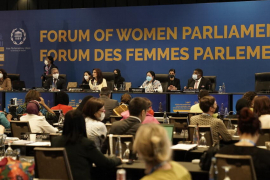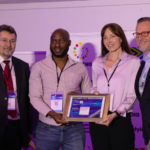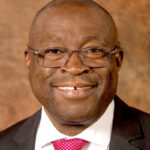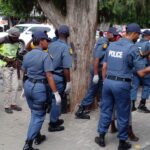Parliaments of the world need to establish strong, effective, responsive policies, structures and mechanisms in parliaments, including within political parties, to avert and protect women Members of Parliament from physical and psychological attacks.
The call was made by National Council of Provinces (NCOP) Deputy Chairperson, Sylvia Lucas, during a panel debate on ‘Gender Sensitive Parliaments: Parliaments Free from Sexism, Harassment and Violence against Women’ – facilitated by the Forum of Women Parliamentarian of the Inter-Parliamentary Union (IPU).
The panel discussion followed the official opening of the 145th IPU Assembly by President of Rwanda, Paul Kagame. The IPU Assembly is currently underway in Kigali, Rwanda.
Addressing the panel, Lucas said the legal instruments and mechanisms should cover all spheres and nodes of society where women become victims of abuse, including households and all social media platforms.
She made reference to the IPU studies undertaken in 2016 and 2021 on sexism, harassment, and violence against women parliamentarians, which demonstrated fairly graphically the pervasive nature of patriarchy, which continued to undermine women’s meaningful participation in all spheres of society.
“The rules of our parliaments must be accordingly strengthened, in order to make provision for the inclusion of gender sensitive rules, to govern all parliamentary proceedings, stipulating harsh sanctions against perpetrators.
“We must also urgently review our parliamentary immunity rules, to ensure that our rules do not afford MPs immunity from prosecution for sexual harassment, violence against women and related matters,” Lucas said
Lucas also called for a women-friendly mechanism for reporting and lodging complaints against all forms of violence in parliaments covering activities within political parties.
She said the downfall of most systems is the absence of meaningful consequences management for those found to have violated policies and regulations.
“We have to ensure strict enforcement of zero-tolerance policies, criminalizing all forms of violence against women in our political parties. We must stand firm in our resolve to address all forms of aggression because they are intended to impede our full participation and contribution to political and social life.
“The consequence of not dealing decisively with this scourge will “inadvertently hinder implementation progress on the 2030 Development Agenda, which is aimed at creating an equal and empowered sustainable world,” Lucas said.
Call for gender-responsive approach to migration
Dr Annellie Lotriet, from the South African Parliamentary delegation, called for “a right-based, gender-responsive approach to migration”, as migration has an opportunity for many women and girls to fulfil their full potential, mostly running away from deeply entrenched gender inequalities, including sexual and gender-based violence (GBV), as well as lack of access to resources in their respective nations.
Lotriet said women bear the brunt of violence, discrimination, and other human rights violations meted against them at various stages of the migration process.
She called for gender-responsive migration policies and presented South Africa’s proposals, which include “expressing deep concern at the reports of grave abuses and violence committed against migrant women and girls”.
South Africa also proposed and urged governments of the world to develop, enforce and strengthen effective gender-sensitive measures to combat and eliminate all forms of trafficking in women and girls, including sexual and economic exploitation, as part of a holistic anti-trafficking strategy that integrates a human rights perspective.
The South African delegation attended a series of engagements on Wednesday, including the Governing Council, various standing committees, as well as the Association of Secretaries General of Parliaments (ASGP).
The IPU’s 145th Assembly is scheduled to receive numerous reports, including the Task Force briefing on the Ukrainian-Russian conflict.
National Assembly Speaker, Nosiviwe Mapisa-Nqakula, who is leading the South African delegation, is part of the IPU-appointed task force, which conducted bilateral engagements with representatives of parliaments of both countries as part of its meditation efforts.












